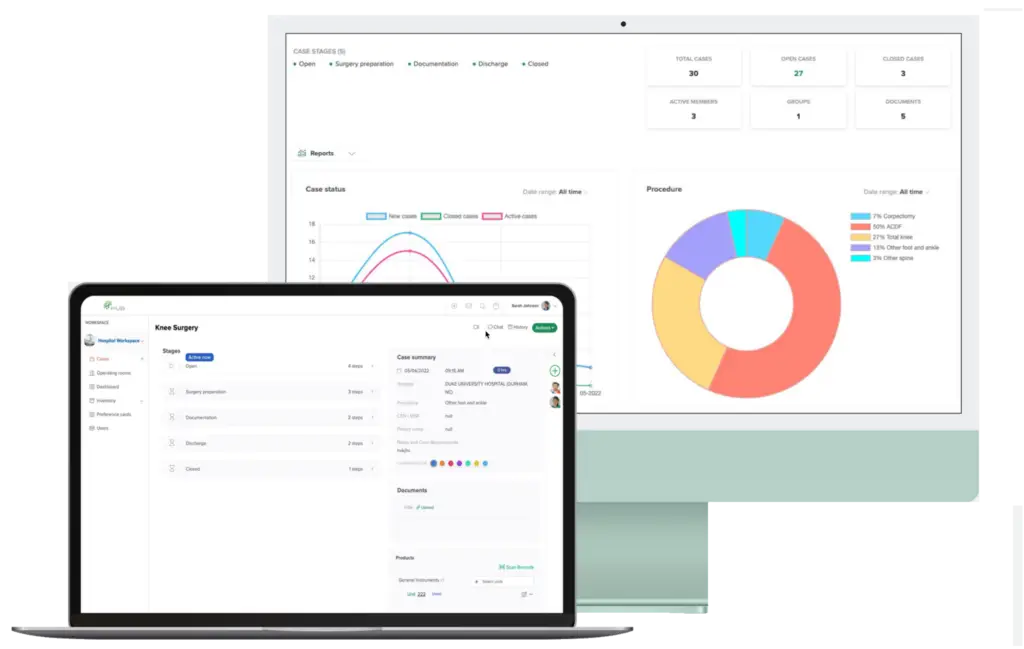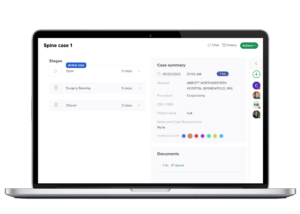Your Top Questions About CMS and ASCs Answered
Navigating the complexities of CMS regulations can be challenging for any Ambulatory Surgery Center (ASC). To help clarify some of the most common questions, we’ve compiled a list of frequently asked questions about CMS and ASCs. This guide aims to provide clear, concise answers to help you better understand the requirements and how they impact your ASC.
1. What Are CMS Guidelines for ASCs?
The Centers for Medicare & Medicaid Services (CMS) sets forth guidelines that ASCs must follow to participate in Medicare and Medicaid programs. These guidelines cover various areas including patient rights, infection control, emergency preparedness, and quality assessment.
2. Why Are CMS Guidelines Important for ASCs?
CMS guidelines are essential for ensuring the safety and quality of care in ASCs. Compliance is not only mandatory for participating in federal healthcare programs but also crucial for maintaining high standards of patient care and operational excellence.
3. How Often Do CMS Guidelines Change?
CMS guidelines can change periodically due to updates in healthcare regulations, advancements in medical technology, or shifts in policy. It’s important for ASCs to stay informed about these changes to maintain compliance.
4. How Can ASCs Stay Updated on CMS Changes?
ASCs can stay updated by regularly checking the official CMS website, subscribing to CMS newsletters, and participating in healthcare associations that provide updates on regulatory changes.
5. What Happens During a CMS Audit?
During a CMS audit, auditors will review an ASC’s compliance with CMS guidelines. This can include examining documentation, policies, patient records, and quality control procedures. The audit aims to ensure that the ASC meets all required standards.
6. How Can ASCs Prepare for CMS Audits?
Preparation for CMS audits includes conducting regular self-audits, maintaining accurate and up-to-date documentation, training staff on compliance procedures, and having a clear understanding of CMS guidelines.
7. What Are the Penalties for Non-Compliance with CMS?
Non-compliance can result in various penalties including fines, reimbursement denials, and potentially losing the ability to participate in Medicare and Medicaid programs.
8. How Does Technology Aid in CMS Compliance?
Technology, such as Electronic Health Records (EHRs) and compliance management software, can help ASCs maintain records accurately, track compliance tasks, and streamline reporting processes.
9. Can ASCs Challenge CMS Audit Findings?
Yes, ASCs can challenge audit findings. It’s advisable to respond to audit findings with a plan of correction and, if necessary, provide additional information or clarification to contest the findings.
10. Where Can ASCs Find More Information and Resources on CMS Compliance?
ASCs can find more information and resources on the CMS website, through healthcare industry associations, and educational platforms dedicated to healthcare compliance.
If you have more questions or need further information, we invite you to explore our comprehensive FAQ page. Here, you’ll find detailed answers and resources to guide you through the maze of CMS regulations and best practices for ASCs.

How HUB Healthcare Can Help with Compliance Management
HUB Healthcare offers a comprehensive compliance management system designed to help Ambulatory Surgery Centers (ASCs) adhere to CMS guidelines and streamline their operations. Here’s how HUB Healthcare can enhance your compliance capabilities:
Risk Identification & Management
HUB Healthcare provides tools to identify and manage compliance risks effectively. By tracking regulatory changes and automating updates, HUB ensures your ASC stays compliant with the latest standards.
Automated Regulation Tracking
Keeping up with regulatory changes is crucial. HUB automates the tracking of compliance regulations, reducing the burden on staff and ensuring all updates are incorporated into your workflows promptly.
Real-Time Compliance Monitoring
HUB Healthcare offers real-time monitoring of compliance activities, allowing you to identify and address potential issues before they escalate. This proactive approach minimizes the risk of non-compliance and enhances overall safety.
Clear Compliance Reporting
HUB’s platform includes robust reporting features, providing clear and detailed compliance reports. These reports are essential for audits and help maintain transparency within your organization.
Training and Record Management
Ensure all staff are up-to-date with the latest compliance training. HUB Healthcare helps manage training records and schedules, making it easy to track staff compliance and readiness.
Seamless Integration
HUB Healthcare seamlessly integrates with existing systems, ensuring that compliance management is part of your daily operations without disrupting your current workflows.
By leveraging HUB Healthcare’s compliance management tools, ASCs can improve care coordination, enhance communication in healthcare, and ensure adherence to healthcare analytics and regulations, ultimately leading to better patient outcomes and operational efficiency.





